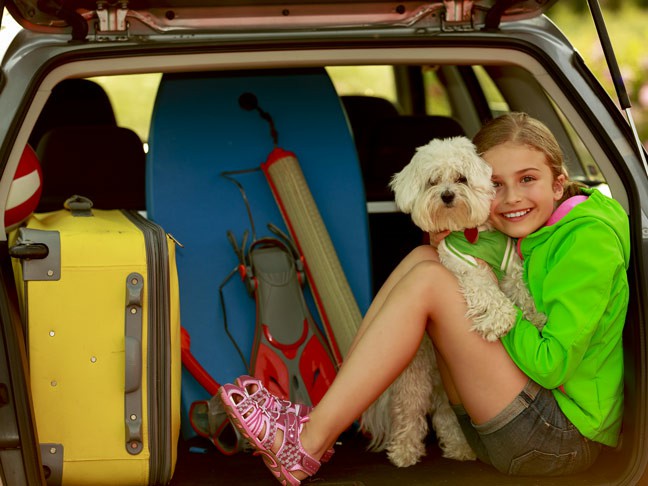
Check International Laws with Your New Country's Consulate
Different countries have different rules concerning the import of animals, especially particular breeds of cats and dogs. Rules can also vary depending on your current country of residence. Some websites outline some of these guidelines, but the best way to ensure you're getting accurate, up-to-date information is by contacting the local consulate of your destination country. A representative will happily discuss your pets and provide the information you need to know about moving overseas with them.
Meet the Requirements of Your New Home
Once you've checked the requirements of your new home, you can take steps to ensure your pets satisfy them. While these requirements will vary, most nations require that imported pets are microchipped. You'll also likely need a health certificate issued by your vet and proof that your pets' rabies vaccinations are current. Some countries, including Australia, have additional regulations. Here all imported dogs require a Bordetella vaccination, for example.
Know Whether Your Pet Will be Quarantined
Australia is one of several countries that quarantines imported pets on arrival. You should know whether your pet will be quarantined and how long you can expect this quarantine period to be to prepare yourself and your family members for pet-free time in your new home. If any of your pets are on medications, you'll also need to supply enough to last this period. The time your pet will spend in quarantine will depend on the country you're travelling from. In Australia, pets from New Zealand face no quarantine period, while those coming from the United Kingdom are quarantined for 10 days.
Organise Transport for Your Pets
You can't simply take your pets with you as hand luggage. With the exception of service dogs, pets typically need to travel as freight. They'll also always need their own ticket to travel to your new home. You could negotiate with the airline when you make your booking, but arranging pet transport with your moving company is another good alternative. Companies like Chess Moving offer comprehensive pet relocation services including free pre-flight pet health checks, crate hire, and advice on boarding. Its experienced staff will also make sure your pet meets quarantine and customs requirements.
Get Your Pets Used to the Crates
Whether you're buying or hiring your pet crates, it's a good idea to get them early so your pets can get used to them. It can be very scary for pets to be taken out of their environment and put inside a strange crate for the flight. Helping your pet familiarise themselves with the travel crates early can help alleviate stress during the journey. You want them to learn that the crate is a safe place.
Make Them Flight Ready on Departure Day
Final preparations on the day of your pets' departure will ensure they're flight ready. Cats and dogs should have their nails trimmed to make sure they don't snag on their crates. You should feed your adult pets their last meal six to eight hours prior to their flight's departure to minimise the risk of soiling their crates.
Gather up enough food and medication for the flight, a leash if your pet's a dog, and a favourite toy or blanket. Special items like this can be placed in the crates to reduce anxiety. This is a much better option than sedation for most animals, as sedatives can prevent animals from bracing themselves for turbulence as they naturally would. You should also spend as much time as possible with your pets before you leave to settle their nerves.
Prepare for the Unexpected
Moving your pets overseas can be a complicated and costly process. The Internet is full of stories of animals being kept at customs longer than expected for minor mistakes like the wrong colour pen being used on a form. Partnering with an experienced company like Chess Moving will minimise the chance of mishaps occurring, but it's still important to prepare for the unexpected.
Keep multiple copies of any pet-related documentation you lodge so that you can present it if there are any queries. Set aside a contingency fund for any unexpected fees that could crop up during the moving process. These measures will help you act as soon as issues arise, and that could potentially save you thousands.
Use this article as a guide to make sure you don't overlook anything when preparing to move your pets overseas.